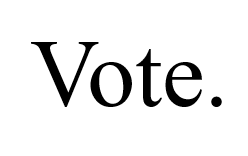Brain injury and stroke patients being discharged from hospital earlier than normal due to the coronavirus pandemic will receive virtual rehabilitation at home as part of an innovative pilot study spearheaded by neuroscientists at University College London and its allied hospitals, supported by the charity SameYou (set up by Game of Thrones actress Emilia Clarke).
As a result of the global pandemic, critical care beds in all hospitals (both general and specialist) across the country are being freed up to care for Coronavirus patients. This means stroke (a medical condition in which poor blood flow to the brain results in cell death) and other brain injury patients, who might typically spend six weeks under observation in specialist neurological units to recover and rehabilitate, are being discharged back home in less than two weeks to make beds available and protect these often elderly and/or vulnerable patients, who have a greater risk of infection by COVID-19. Community services are also less able to do home visits to ensure continuing rehabilitation programmes for these patients.
To ensure patients continue to receive high quality support, the UCL Faculty of Brain Sciences and the National Hospital for Neurology and Neurosurgery (part of UCL Hospitals NHS Foundation Trust), both located in the West End, plan to deliver all stroke rehabilitation remotely, covering both emotional and physical recovery. With the support of dedicated fundraising by SameYou, the team are repurposing a web portal to deliver virtual group sessions into the homes of up to 20 people via laptops/tablets and smartphones. Via the portal, sessions will be timetabled and patients will be invited to take part.
Trained therapists will then be able to cover physiotherapy, occupational therapy, speech and language therapy, cognitive strategy, fatigue management and emotional support that would ordinarily have been delivered in person at the hospital. They are also making use of one-to-one video consultations, accredited apps like my.therappy.co.uk and orcha.co.uk as well as exercise videos shared to YouTube.
Professor Nick Ward of UCL, who is leading the team involved with the project, commented:
The coronavirus pandemic means people with stroke and brain injuries will be living back at home much earlier than normal: we will have a large population of vulnerable patients in the community, who need support. Ordinarily rehabilitation teams would visit patients at home, however due to Covid-19 this cannot happen, so we want to use virtual technologies to ensure good levels of care can still be provided.
This funding [SameYou] will enable us to pilot a project, which uses existing technologies such as WhatsApp or Zoom, to get essential rehabilitation into people’s homes. We will set up virtual rehabilitation and support groups and to provide both emotional and physical support – helping them adjust to what’s happened.
SameYou has launched an appeal to help brain and stroke injury patients receive recovery therapies at home during the pandemic. It was established in 2019 by Emilia Clarke, who has had her own experiences with brain aneurysms and neurorehabilitation, and aims to broaden care/treatment access for young people after a brain injury or stroke. A fundraiser titled ‘Justice For Daenerys‘ following the conclusion of the final season of Game of Thrones raised over £83,000 for the charity, and was a way for fans of both the character and the actress to show their collective appreciation.
Have you, or do you know of someone who has recently suffered a brain injury or stroke?
Registrations are now open for @SpauldingRehab's PAVING the Path to Wellness free 6-week virtual rehab program.
Find out more & register here: https://t.co/djSDLUvrUW #braininjury pic.twitter.com/eLAALJobE5
— SameYou (@SameYouOrg) April 8, 2020
All proceeds from the latest fundraising efforts will be donated to the both Queen Square Institute of Neurology in London and Spaulding Rehabilitation Hospital in Boston, allowing them to fund virtual therapy clinics and enabling rehabilitation therapists to keep in touch with post-acute stroke and brain injury patients to provide the essential help they need.
Clarke said of her latest efforts:
For people who’ve had brain injuries and strokes, rehabilitation and recovery is often the forgotten part of care – but it’s a vital part of recovery. At the moment patients who are leaving hospitals early, will be lost without the expert help and care of teams like those at UCL, which is why this virtual rehabilitation project could be so valuable. It’s a chance to deliver something new, while other patients affected by coronavirus are rightly being given the care and support they need in hospitals.
The UCL pilot project is also supported by NHS England guidelines, which recommend delivering community rehabilitation remotely using technology and innovation. Donations for the pilot project can be directed to the JustGiving page set up by SameYou.



